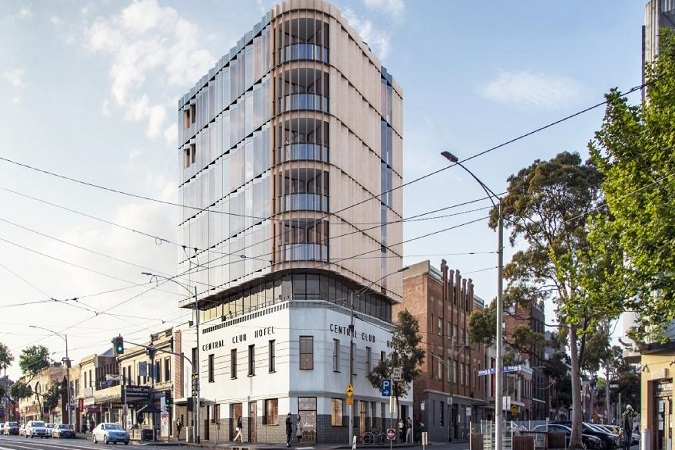06
Nov 2020
Art deco heritage pub to transform into hotel for nurses visiting Melbourne
Published in General on November 06, 2020

An Art Deco heritage pub in Melbourne, will be the site of a new eight storey hotel which will provide short-term accommodation for nurses visiting Melbourne for conferences, training and meetings. The purpose of the redevelopment will be to accommodate interstate and international nurses for short visits to conferences and professional development in Melbourne. About a third of the 86,000 nursing union members reside in regional Victoria.
The Central Club Hotel on Victoria St was purchased by The Australian Nursing and Midwifery Federation in 2017. The Federation purchased the building for nearly $9 million. The Central Club Hotel itself has been run by two local brothers for the past 40 years.
The group plan to bring back the hotel’s former glory with an added eight storey residential hotel overlooking Queen Victoria Market, with 33 rooms, a rooftop terrace and garden.
Objectors to this project were concerned the excessive height of the development would overshadow The Queen Victoria Market and block views of neighbouring apartments.
However the City of Melbourne has decided to grant a permit, with conditions, to keep the pub on the ground floor, partially demolish the existing building and retain the street facing heritage façade.
“The existing Central Club Hotel building will be restored and refurbished to highlight and celebrate its heritage features,” a council report stated.
“The use of heritage paint colours and replacement of like for like window and door furnishings will create an attractive and appropriate street frontage along Victoria and O’Connell Streets.”
Levels two to seven will be one bedroom apartments available for short-term accommodation for rural and regional nurses visiting the city for workshops, seminars and conferences. Nearby hospitals include the Royal Melbourne Hospital, Royal Children's Hospital and St Vincent's Hospital.
According to the council report, “The retention of the heritage building and the creation of a highly considered upper level facade creates a positive architectural addition to the changing public realm.”









